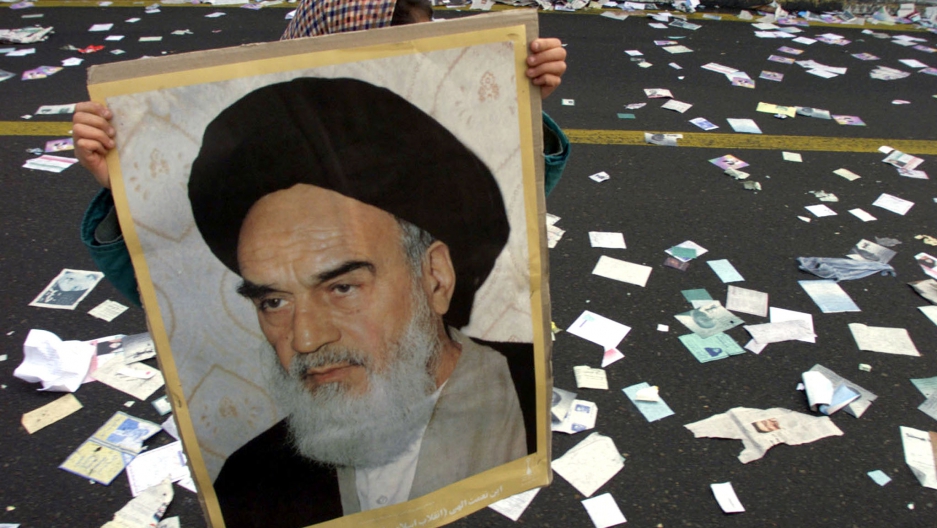London-Newly declassified U.S. government documents released by Washington few days ago revealed the founder of the Wilayat al-Faqih was in contact with the U.S. government since the 1960’s, even until a few days before his arrival to Tehran from the French capital and the creation of the Iranian Revolution in 1979.
The leaked cables published by the Central Intelligence Agency (CIA) described Ayatollah as the religious man who showed his readiness to speak with the U.S. president about developments in the country, despite being under house arrest.
According to the documents, Khomeini exchanged secret letters with former U.S. president John Kennedy, few months following his release, at the start of November 1963. In the letter, Khomeini explained “his verbal attack should not be misinterpreted, because he was defending American interests in Iran.”
The documents were released two days following the 27th commemoration of Khomeini’s death, revealing that the founder of the Iranian regime chose to speak with the U.S. president after being furious with the social and economic reforms brought by the former Iranian regime and also known as the “White Revolution” in 1963.
A BBC report said Khomeini considered these reforms “a threat to Islam.”
The BBC report added that the U.S. embassy cables in Tehran which include Khomeini’s messages remain classified in the national U.S. archive. However, in March 1980, a leaked analysis of 81 pages titled “Islam in Iran” included parts of these messages.
The CIA analysis was partially released to the public in 2008.
According to the document, one of the letters arrived to the U.S. Embassy few days prior to the visit of U.S.S.R. Secretary-General Leonid Brezhnev. The document reveals that the U.S. embassy used to receive Khomeini’s letter through a person close to him, called Haj Mirza Khalil Kamarei.
The cables also revealed that Khomeini’s letter arrived to President Kennedy on Nov. 6, 1963, two weeks before his assassination.
Iranian officials were largely furious from the leaked cables, as reported by Iranian websites. Mizan news agency quoted member of the Scientific Seminary in Qom, Hussein Ibrahimi as saying those behind the leaked documents are trying to “prove that the regime is in contact with the West and that the Revolution is American.”
